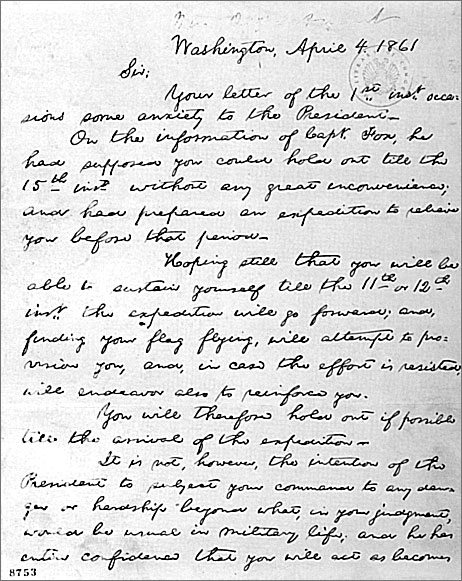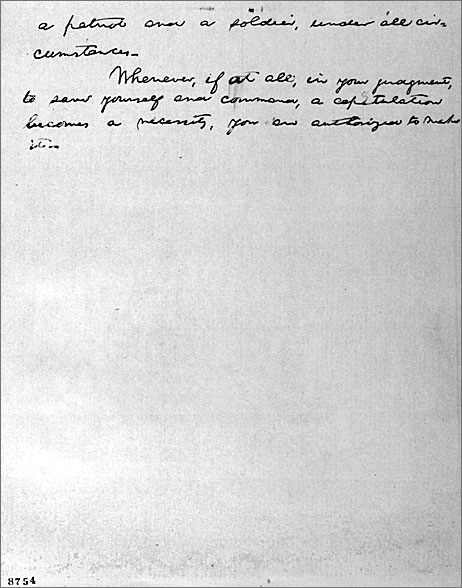Lincoln as Commander in Chief
Despite his lack of military experience, Abraham Lincoln was forced to become an active commander in chief. During the crucial year of 1863, he had to beg, wheedle, demand or replace Union generals in the field to accomplish his goal of aggressively carrying the war to the South. Finally, in Ulysses S. Grant, he found a kindred spirit.
More out of necessity than inclination, Abraham Lincoln became one of the most active commanders in chief in American history, directly influencing and managing events and generals in every field of operations during the Civil War. Never before had a president been able to communicate his desires to far-off commanders as quickly as Lincoln was able to. He could do this because of recent inventions that speeded communication, most notably the telegraph.
Lincoln’s active managerial style was most prominent in 1863. At the beginning of that year, the Union was poised on all fronts to take the offensive. In the West, Federal forces were preparing to move down the Mississippi River to capture Vicksburg, Miss., the last major port along that river not already in Union hands. When this was done, the Confederacy would be cut in two.
Gerald T. Riggs
Ref.: The HistoryNet.com
By the time Lincoln took office, seven states had seceded. The President’s stated aim was to preserve the Union, but he made the critical decision to send supplies to Fort Sumter, a move regarded by the South as an act of war. The first shots of the Civil War were fired on April 12, 1861.
Draft of Abraham Lincoln’s instructions to Maj. Robert Anderson in command at Fort Sumter, Charleston, South Carolina, 4 April 1861.
(Abraham Lincoln Papers) – Library of Congress


Lincoln took immediate military action, summoning the state militias to federal service, calling for volunteers and suspending habeas corpus in critical areas.
As president, Lincoln differed markedly from his counterpart, Jefferson Davis. Lincoln placed ability before compatibility, appointing his rival Seward as secretary of state, the outspoken abolitionist Salmon P. Chase as treasury secretary, the Democrat Edwin Stanton as war secretary. As a military leader, he got off to a poor start. Federal soldiers were not prepared for the initial push to Richmond, which resulted in a crushing defeat. Conditions were worsened by his selection of ineffective military commanders. The news from the battlefront continued to be discouraging until the battle of Antietam (September 1862). In early 1863, Lincoln issued the Emancipation Proclamation, a move fostered by a combination of moral, political and diplomatic concerns. Military leadership continued to be a nagging problem until Lincoln gave the command to Ulysses S. Grant, the hero of Vicksburg.
Both Lincoln and Davis found it necessary to appoint men to high rank in the army based purely or mostly on political considerations. Unfortunately a good number of Lincoln’s political generals not only proved to be unworthy of their exalted ranks on the battlefront, but also proved to be millstones otherwise to Lincoln.
Ref.: Dispatch Depot Message Board
Instructions for the government of Armies of the United States in the field by President Lincoln. April 24, 1863.